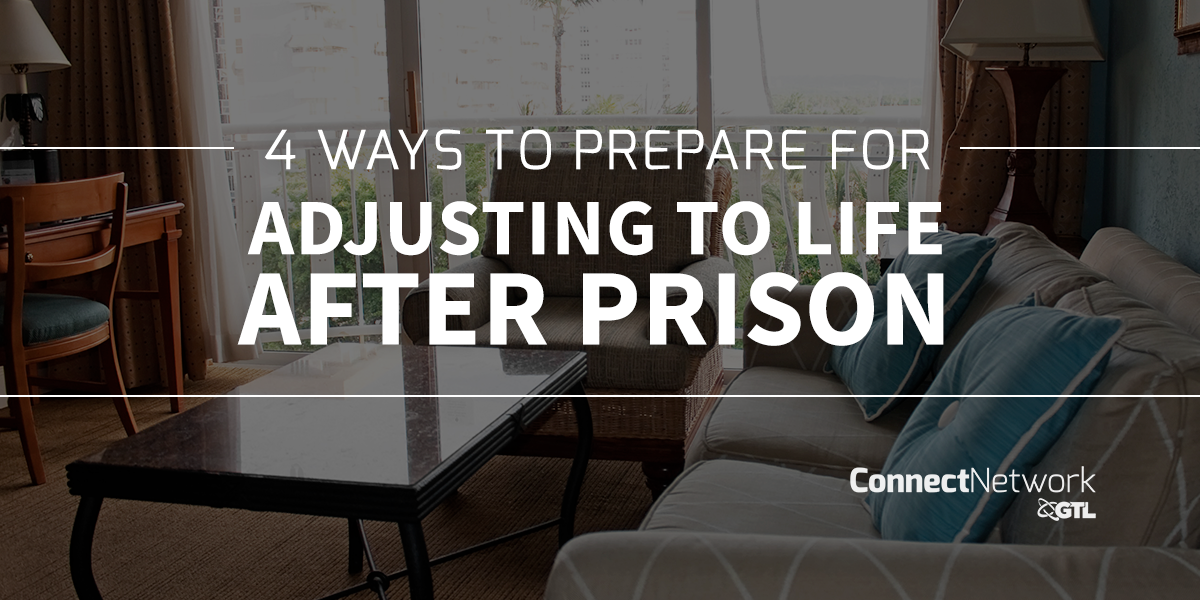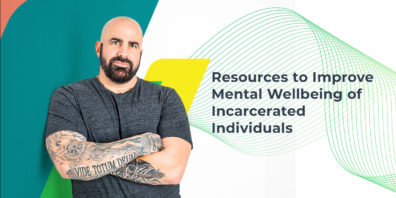4 Ways to Prepare for Adjusting to Life After Prison
août 30, 2016
Adjusting to life after prison is a time for new beginnings.
The time following a sentence can be filled with second chances and opportunities, especially when the former prisoner returns to society prepared.
According to a study led by Elizabeth W. McKune inside the Kentucky DOC, “offenders fare best on the outside when they run through some of the sticky situations they’ll encounter ahead of time—such as talking about their prison time with a potential employer—and learn some problem-solving and social skills to help them navigate their new lives.”
Consider the four important ideas outlined in this article when an inmate is released. Being fully prepared gives inmates the highest chance of success for adjusting to life after prison.
1. Get Involved in the Community
Taking steps to join some kind of regular communal activity provides real value.
Examples can include:
- religious group
- volunteer organization
- sports team
- professional club
As an inmate’s release date nears, loved ones can gather information on the local community and its organizations. By spending time learning about social options in the community, an inmate can plan which group(s) he or she intends to join upon returning.
Having an idea about where the inmate can fit back into society helps in multiple ways. The inmate is able to envision themselves taking part in their chosen activities as they near their release date.
Visualizing is proven to increase the likelihood of success.
In this case, it will promote attendance and active participation in the community when the time comes.
Getting involved in the community helps with adjusting to life after prison, as it creates an added level of accountability in the former prisoner’s life. While a job is necessary for income purposes, a social group is a choice. Creating friendships and a sense of belonging can be extremely helpful for rehabilitation.
Additionally, the relationships built within these community groups can lead to job opportunities—a crucial step to reentry to society.
2. Work and Contribute to Society
Studies show that many former inmates tend to end up back in prison when they cannot find employment. Preparing to reenter the workforce prior to release can be done a variety of ways.
Certain correctional facilities offer programs for inmates nearing release specifically geared towards finding employment. Inmates learn skills like interviewing techniques, communicating with authority, technology skills, as well as the basics like getting to and from work, punctuality and more.
SEE ALSO: How Work Release Programs For Inmates Aid in Rehabilitation
For facilities that don’t offer these programs, or for inmates whose sentence makes them ineligible to participate, working with friends and loved ones to prepare for finding employment is certainly an option.
Practicing the following skills can be done over video conferencing and in person:
- Role play interviewer/interviewee
- Resume writing ideas
- Non-verbal communication skills
- Research potential job openings for the inmate, then prep them with information
Finding work is a large part of adjusting to life after prison. A series of companies and non-profits offer placement services and provide resources on companies that hire former inmates. Below is a list of websites with valuable information on this topic:
3. Joining A Support Group
As mentioned, the benefits of getting involved in the community while adjusting to life after prison are valuable. In addition to community activities, former inmates can benefit immensely from joining a prison-specific support group.
While community members and friends can help a former inmate in many ways, the support provided by a group of people who have experienced prison is even more powerful.
Through shared experience, an ex-offender support group helps its members build a healthy, positive lifestyle through participating and understanding. Preparing to join a support group takes only one step—locating the right group.
Prior to being released, an inmate can seek information on support groups with the help from loved ones. Sometimes, correctional facility staff can aid in the preparation of joining a support group after release.
4. Find Housing
Some former prisoners have a family or loved one preparing to provide them with a safe and comfortable home upon their release. Unfortunately, some prisoners’ support systems have grown smaller over the years requiring them to find housing on their own.
A safe place to live is essential to a successful reentry. Statistics show that prisoners without housing are at the highest risk for recidivism. But most ex-prisoners have no money to pay rent, no belongings like a bed or sheets, and no way to immediate obtain either.
To help an inmate prepare to find housing, the following steps can be taken:
Locate Resources
Contact nonprofit groups, local government and religious organizations that assist ex-prisoners. On a local level, these groups can provide the best information about housing options available for newly-released prisoners including half-way houses, shelters and very low-cost rentals.
Create Relationships
Spend time meeting the person(s) who may offer housing to your loved one. You want to be sure they are accepting new tenants before making your incarcerated loved one aware of the option. Additionally, building rapport with the managers of these locations means your loved one will start off on the right foot feeling welcomed and safe upon their arrival.
Assist With The Application Process
If need be, you can gather and complete necessary documentation on behalf of your incarcerated loved one so there is no gap between prison and their new housing.
Adjusting to Life After Prison is a Process
Adjusting to life after prison is definitely a process with many variables. Preparing for the adjustment period is crucial; practicing the following four steps offer prisoners a way to feel more confident about their re-entry.
- Get involved with the community
- Work and contribute to society
- Join a support group
- Find housing
Share your stories of re-entry with us and help others with their adjustment period on our Facebook Page.
Posted In: Blog



